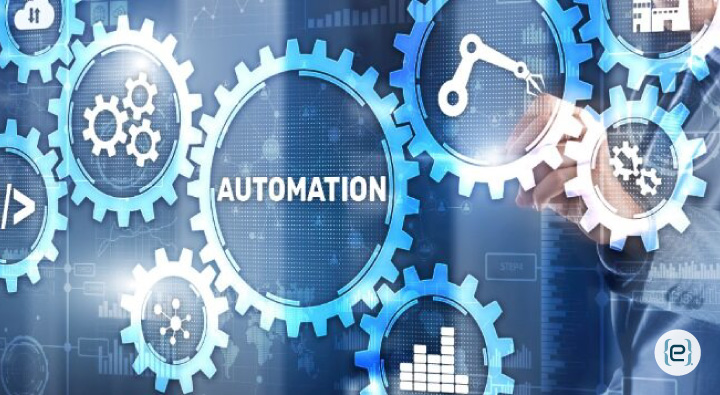Machine learning (ML) is one powerful way to enable computers to learn on their own based on the data given and make improvements without being programmed. A subset of artificial intelligence (AI), ML enables machines to learn from data so that they can identify patterns, make forecasts, and act based on information.
What is Machine Learning?
Machine learning is the process of algorithms analyzing and using data to make decisions or predictions. Whereas traditional software demands predefined rules, ML models get better as they see more data.
Types of Machine Learning
- Supervised Learning: This is a supervised learning method, where the input data (X) has labels or output (Y). The model learns to predict results according to the patterns that it has identified. Uses include spam email detection and predicting stock prices.
- Unsupervised Learning: This requires using unlabeled data where the model uncovers underlying patterns or groupings without specific directions. Uses range from clustering (customer segmentation) to anomaly detection in network traffic.
- Reinforcement Learning: An agent in reinforcement learning learns how to take actions by creating an interaction between the environment and reward or penalty. This is commonly used in robotics and game AI, where agents learn how to behave by experimenting with different strategies.
Features of Machine Learning
- Data: The better the data you use, and the more in line with reality it is, the higher quality an ML model can be. The performance of the model will be better if it is well-fed, and it gets data that is well prepared and diverse. This includes collecting data, cleaning it, and selecting the features to analyze for obtaining any insights.
- Algorithms: Machine learning is essentially dependent on the algorithms used to manipulate data and predict outcomes. A few of the commonly used algorithms are linear regression, decision trees, support vector machines, and neural networks. Some algorithms work better on some data types and scenarios than others,
- Training and Testing: In a typical ML workflow, you will split your data into training and testing. The training set is used to learn the model, and then it evaluates accuracy through measures on test sets.
- Model Evaluation and Tuning: The model is evaluated by measuring performance metrics like accuracy, precision, recall, and F1 score. Hyper-parameter tuning is done only if it performs poorly.
Machine Learning Applications
- Healthcare: ML is applied in healthcare such as predictive diagnostics, drug discovery, medical image analysis, and personalized treatments. ML helps identify many diseases, like cancer, by recognizing patterns in medical imaging.
- Finance: ML is used to find fraudulent transactions — financial institutions may use it to assess credit risk for new customers, or for forecasting markets. ML-based algorithms help Robo-advisors in doing tasks like this, or in designing a personalized investment portfolio for an end-user.
- E-commerce: Apps/platforms such as Amazon & Netflix, where ML-based recommendation engines provide users with products or content most relevant to their past behavior/preferences.
- Autonomous Vehicles: Self-driving cars use ML to understand sensor data, identify objects on the road, and decide what action needs to be taken next. Organizations need reinforcement learning algorithms to train vehicles in dynamic environments.
- NLP — Natural Language Processing: NLP is a branch of artificial intelligence (AI) in which we enable computers to read, understand, and generate human languages. Common use cases include Chatbots, voice assistants (Alexa or Siri), and language translation services like Google Translate
- Cybersecurity: ML algorithms are essential for keeping an eye out on the network traffic or user behavior, and raising alerts if there is any anomaly (protection against malware).

Benefits of Machine Learning
- Automation of Complex Tasks: By automating repetitive and time-consuming tasks, organizations can improve efficiency. The result: automated customer service and industrial processes.
- Improved Decision-Making: ML Models help businesses with granular data-driven insights or decisions as they study large volumes of data. Organizations can more easily anticipate trends, minimize risks, and streamline their operations with the help of predictive models.
- Customer-centric, personalized engagement: This allows businesses to deliver tailor-made experiences for customers, leading to higher engagement and an increase in loyalty. These include Recommendation Engines, Targeted Marketing & Personalized Communication
- Scalability and Adaptability: Once trained, ML models can deal with big data, and with difficult tasks. They are designed to be adaptable and improve, changing as new data becomes available.
Machine Learning Challenges
- Data Quality: If data is of poor quality or if it is biased, then model predictions will be less accurate, and the models themselves may perhaps give you wrong info.
- Picking the best algorithm: Selecting an appropriate algorithm for a specific task involves trial and error, and experience.
- Interpretability: Many ML models, particularly from deep learning techniques like neural networks can be difficult to interpret in terms of how decisions are made.
- Ethical concerns: ML, if not implemented responsibly, can either inadvertently reinforce bias or be an invasion of privacy.
- Machine Learning: Progress in deep learning, quantum computing, and edge AI are expected to open new horizons of possibility for machine learning.
Over time, as this technology advances, further machine learning will be infused even more into people’s daily routines and in areas like healthcare, finance manufacturing, or education. Trained eMazzanti professionals can help you use ML to enhance the efficiency and Cyber Security of your organization.







